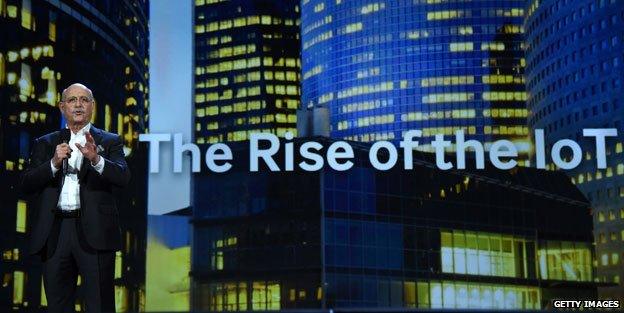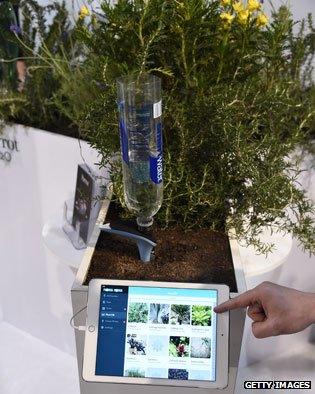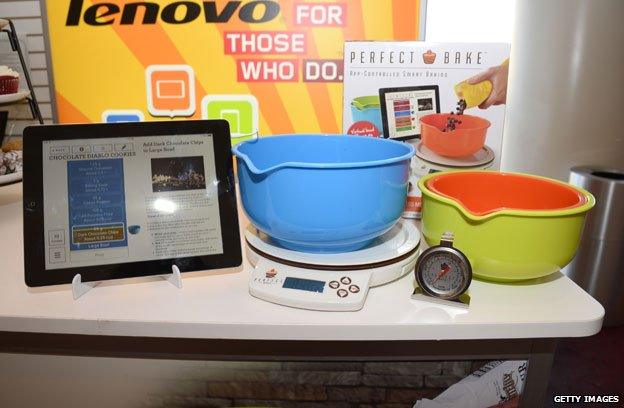The Thing About Vegas
- Published
- comments

Things - they're the next big thing in Las Vegas. Everyone is saying it at CES - Samsung thinks things are the next paradigm in technology, plenty of other companies are telling us that things are going to provide a huge opportunity for them and their customers.
I'm talking about what has fast become the biggest cliche in tech, the Internet of Things.
So what exactly is it - and does it matter as much as we are being told? As we stood next to a huge display about the Internet of Things - or IoT as it is abbreviated - I asked Samsung's connected-home chief Yoon Lee to define it.
He had a decent stab, explaining that just as we once had music on CDs and now had it online in the form of an "Internet of Music", so all sorts of other things would be online - for example you'd have an "Internet of Door" so that you could access your front door remotely. Right, so it's all about things being connected - but what for?
I asked Intel's President Renee James whether she thought anyone outside the show got this idea - and she admitted that they probably didn't. "It means a lot to us," she said "but this show is largely about the industry talking to itself."

Self-watering
Here, then is my go at explaining why "things" matter. For me this show's highlights can be described as drones, homes and automobiles. In each there is a common thread of connectivity, with products needing to have a connection either direct to the internet or to another connected device like a smartphone.
Drones, for instance, are little more than remote-controlled toy aircraft which have been around for years. What has made them exciting is that they can be controlled from the mini computers we all carry in the form of mobile phones and their content in the form of aerial photography can be shared with the world.
Home products - fridges, washing machines, ovens - always elicit a groan from the tech press when they are paraded at CES. But this year all those products and many more are getting an internet connection which opens up all sorts of possibilities.
A washing machine that is online can perhaps contact a repair engineer for remote diagnosis when it goes wrong. Your home heating system can give you information about how much energy you're using and tell you how to save money once it can talk to your phone or computer. The connected plant pot was this year's slightly jokey product from the French firm Parrot, but there was still a wow factor about watching the pot turn on its internal sprinklers at the touch of a tablet.

App-controlled smart baking system
In a similar vein, I can't quite imagine why you would want to park your car by swiping on a smartwatch. But BMW's demo of the self-parking car was just one example of a motor industry which has decided that all of its vehicles now need an internet connection if they are to get smarter - and keep ahead of Google in the race to build in automation.
In fact every important new gadget unveiled at CES has been a connected gadget. And from now on anything that does not talk to the internet or have some way of connecting to a smartphone just won't get attention here - maybe all those phone cases and other tedious accessories can be shunted off to a separate hall.
Now, this world of connectivity brings with it new threats to our security and our privacy. My colleague Mark Ward has written about the way hackers will try to break into the connected home. The electronics industry now has a job to do to explain to consumers what benefits they get from the internet of things and whether they outweigh the dangers.
First, though, something has to be done about that name. "Things" isn't working, if you get my drift. How about the Connected World?